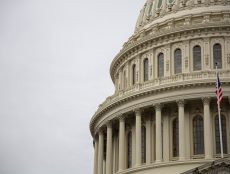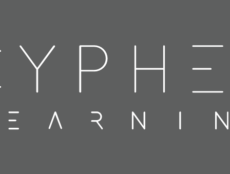
Articles
Open Educational Resources Could Finally Be On the Horizon
By Cait Etherington
March 28, 2018
Anyone who teaches at the postsecondary level knows that among students’ most common complaints is the high cost of textbooks. At some colleges, textbook cost is contentious enough to warrant a special question on course evaluations. While there was little one could do about textbook cost in a pre-digital era, with digital books now widely available, textbooks could be free or nearly free for all students. But that is not yet the case.
This is precisely why Representative Jared Polis (D-Colorado) with several cosponsors, including Democrat, Republican and Independent members, introduced the Affordable College Textbook Act (H.R. 3840/S. 1864) in September 2017. In short, the Act seeks to reduce the cost of textbooks at U.S. colleges and universities by expanding the use of open textbooks and other open educational resources that can be freely used, adapted, and shared. While Polis has yet to gain approval for the Affordable College Textbook Act, last week, his efforts did result in a commitment from Congress to fund a pilot project.
The Need for Open Educational Resources
The Scholarly Publishing and Academic Resources Coalition (SPARC), a global coalition committed to promoted open research, observes, “Higher education is essential to the future of our workforce, economy and citizenry, yet many college students today are unable to access their required course materials due to rapidly rising costs.” SPARC also notes that while some students have always struggled to buy textbooks, over the past decade, textbook prices have skyrocketed. According to SPARC, they have risen 88% over the past decade despite the fact that during this period digital books and digital book readers became increasingly widely available. SPARC is pushing for open educational resources for several reasons, but most notably because they view open textbooks as “the most effective way to reduce textbook costs.” Indeed, while discounted options (e.g., renting books and used books) already exist, as SPARC observes, “the savings are incremental and do not extend to every student. In contrast, using open textbooks has the potential to save students more than one billion dollars per year.”
The Slow Journey to Legislate Affordable Textbooks
While throwing one’s support behind open educational resources may seem like a no-brainer, in fact, the journey to legislate these resources has proven difficult. Congress initially addressed the issue in 2008 when it introduced provisions in the Higher Education Opportunity Act to improve textbook price transparency, but the bill ultimately did little to regulate overall textbook costs. Now, there is a growing lobby to introduce OER textbooks or “open textbook,” which would be available online at no cost and in print at a low cost.
Last week, after a period of intense lobbying, a $5 million-pilot program was finally approved by Congress to create OER textbooks. As stated in a press release issued by SPARC, “In a landmark victory for the Open Education movement, the U.S. Congress has included funding for a $5 million open textbook grant program in the Fiscal Year 2018 omnibus appropriations bill unveiled today. This marks the first major investment by Congress explicitly in open educational resources (OER) as a solution to the high cost of college textbooks, and underscores that course materials are a significant factor in making higher education affordable. The FY18 omnibus is expected to proceed swiftly to votes in the House and Senate and get signed into law this week.”
Details of the $5,000,000 pilot reveal that the pilot will offer a “competitive grant program to support projects at institutions of higher education that create new open textbooks or expand their use in order to achieve savings for students while maintaining or improving instruction and student learning outcomes.” Notably, any open textbook created with program funds will be licensed under a “nonexclusive, irrevocable license to the public to exercise any of the rights under copyright conditioned only on the requirement that attribution be given as directed by the copyright owner.” Institutions that demonstrate the greatest potential to achieve the highest level of savings for students will be favored in the allocation of grants.
While the pilot may not have an immediate impact on the nation’s 20.4 million postsecondary students, it certainly does give college students some hope that in the future, they may be able to access the textbooks they need to fully engage in their courses and programs of study.
Developments in the Private Sector
Meanwhile, several private initiatives have independently sought to either harness OER and/or drive down the cost of textbooks. The Indiana-based Skyepack uses a team of course content designers to work with professors to provide educational materials at a low cost. On average, about 50% of their content comes from OER.
“Primarily we are focused on providing students with affordable course content,” said Skyepack CEO Brady Kalb. “We have a team of instructional designers. When we start working with a faculty, we’ll pair with someone on the instructional design team. The instructional designer’s job is to first understand the learning objectives of that course, the topics that are being taught, the teaching methodologies and pedagogies that the instructor is using, their assessment strategies, and the specific needs of the student population.”
“We then go out and curate content that meets all of those different objectives from various sources. All of that content is then delivered to students on our web and mobile platform. Our target cost for students is around $35 dollars. There are a lot of variables that go into determining what that price is exactly, but that’s where we want to see things end up. The intent is to take a course that has a high-priced $150 to $200 textbook and work with the professor to offer that content at a more reasonable price.”
The publishers McGraw Hill, in collaboration Barnes and Noble Education and online textbook provider Chegg have sought to provide digital textbook rentals to lower costs as well. This semester, 250 major McGraw Hill textbooks have been digitized. By renting, students can save as much as 70%. The publisher has pledged to make this option available for all future textbooks it releases.









No Comments